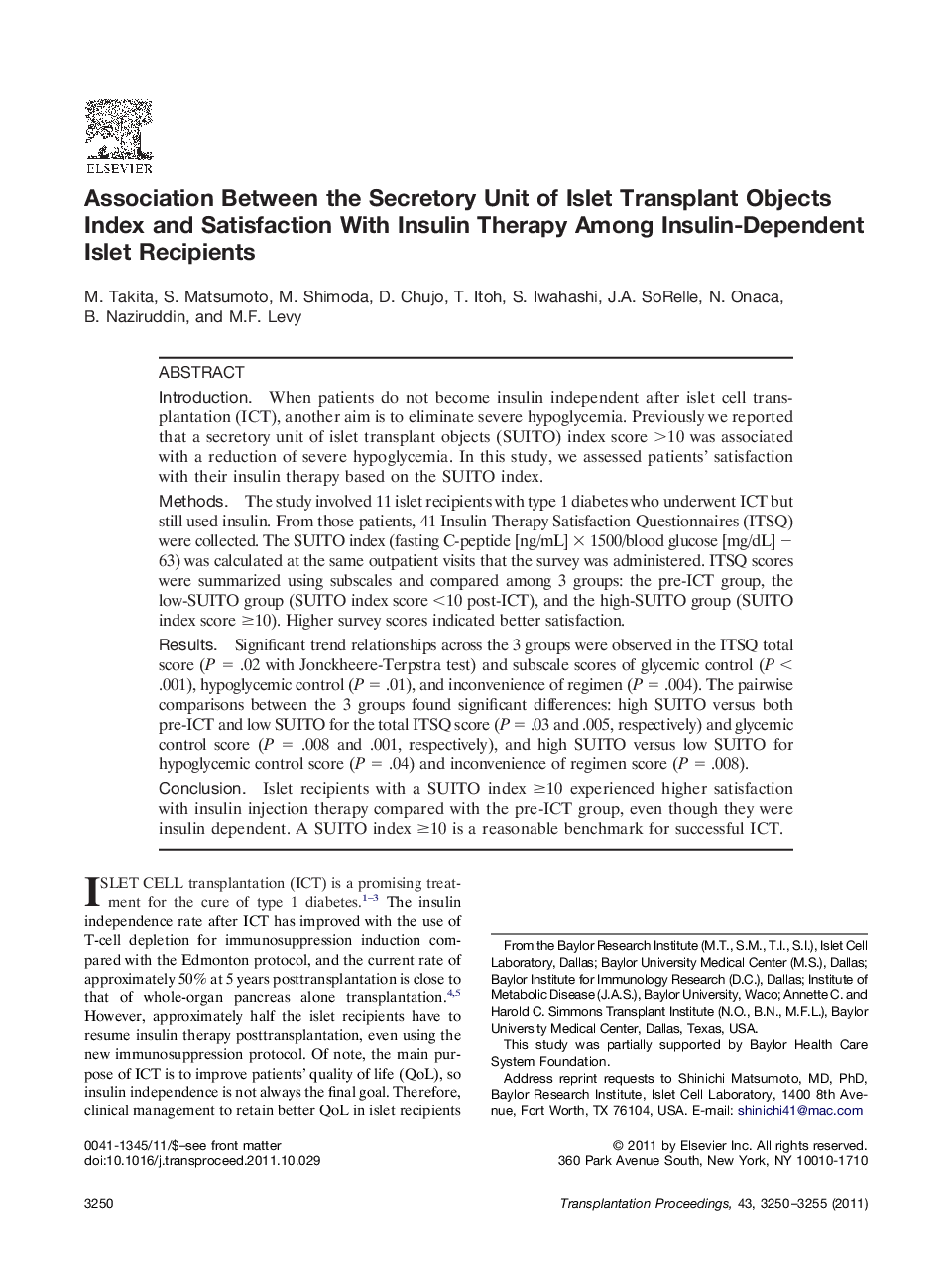| Article ID | Journal | Published Year | Pages | File Type |
|---|---|---|---|---|
| 4258569 | Transplantation Proceedings | 2011 | 6 Pages |
IntroductionWhen patients do not become insulin independent after islet cell transplantation (ICT), another aim is to eliminate severe hypoglycemia. Previously we reported that a secretory unit of islet transplant objects (SUITO) index score >10 was associated with a reduction of severe hypoglycemia. In this study, we assessed patients' satisfaction with their insulin therapy based on the SUITO index.MethodsThe study involved 11 islet recipients with type 1 diabetes who underwent ICT but still used insulin. From those patients, 41 Insulin Therapy Satisfaction Questionnaires (ITSQ) were collected. The SUITO index (fasting C-peptide [ng/mL] × 1500/blood glucose [mg/dL] − 63) was calculated at the same outpatient visits that the survey was administered. ITSQ scores were summarized using subscales and compared among 3 groups: the pre-ICT group, the low-SUITO group (SUITO index score <10 post-ICT), and the high-SUITO group (SUITO index score ≥10). Higher survey scores indicated better satisfaction.ResultsSignificant trend relationships across the 3 groups were observed in the ITSQ total score (P = .02 with Jonckheere-Terpstra test) and subscale scores of glycemic control (P < .001), hypoglycemic control (P = .01), and inconvenience of regimen (P = .004). The pairwise comparisons between the 3 groups found significant differences: high SUITO versus both pre-ICT and low SUITO for the total ITSQ score (P = .03 and .005, respectively) and glycemic control score (P = .008 and .001, respectively), and high SUITO versus low SUITO for hypoglycemic control score (P = .04) and inconvenience of regimen score (P = .008).ConclusionIslet recipients with a SUITO index ≥10 experienced higher satisfaction with insulin injection therapy compared with the pre-ICT group, even though they were insulin dependent. A SUITO index ≥10 is a reasonable benchmark for successful ICT.
